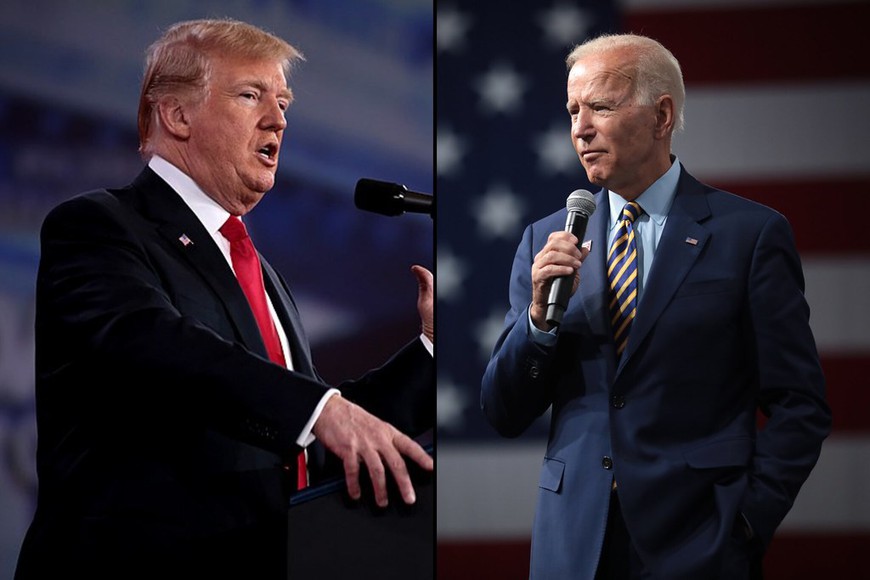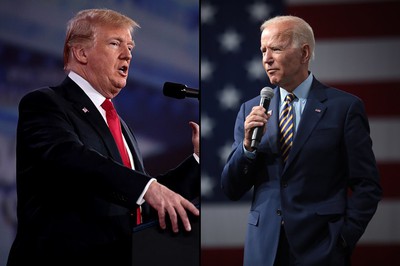

Tuesday’s presidential election will undoubtedly have a huge impact on the future direction of the United States and quite possibly on the future of US online poker.
The battleground states of Michigan and Pennsylvania helped Trump get to the White House in 2016, and both states again figure to play prominent roles in the outcome of the election, which in turn can determine the future of online poker in those states and the rest of the US.
While individual states can authorize online poker within their respective borders, the federal government has the power to regulate interstate commerce which includes online poker rooms allowing players in multiple states to compete against each other.
Sign up to PokerStars PA today and enjoy $30 FREE or a $600 first-deposit bonus »
Online poker is currently legal in six states including both Michigan and Pennsylvania, though Michigan has yet to officially launch its online poker market which is expected to go live before the end of the year.
But it is the ability of online poker operators to allow players from different states that have legalized online poker to compete at the same tables and in the same tournaments (commonly referred to as shared liquidity) that is at stake in this presidential election.
Shared liquidity is vital to the success of online poker. Increasing the number of players that are eligible to play at a particular online poker room exponentially increases the likelihood that the poker room and the industry at large will thrive. Ways that shared liquidity can help make online poker more successful include:
- Allowing for bigger guaranteed prize pools in tournaments
- Increasing the frequency at which smaller tournaments fill up and eventually run
- Increasing the availability of games that run in non-peak hours
- Helping less popular poker variants attract the critical mass needed to run
Online Poker Players Could Make a Difference
The key to any election is turnout, and the margins of victory for Trump in the battleground states of Michigan and Pennsylvania were razor-thin in 2016.
Trump’s margin of victory in Michigan in 2016 was just 10,704 votes or 0.22% of the nearly 4.8 million votes cast. In Pennsylvania, Trumps margin of victory was 0.72% or 44,292 votes of the 6.17 million ballots cast.
It is not much of a stretch to assume there are more than 10,000 online poker players in Michigan. And if the approximately $35 million in revenue generated in the first year of online poker in Pennsylvania is any indication of the popularity of online poker player in that state, then those that want to see more games and bigger tournaments could make a difference if they get out and vote.
After all, Michigan controls 16 electoral college votes and Pennsylvania will cast 20 with a presidential candidate requiring 270 electoral college votes to win. Combined, these two states wield more power than the state of Florida (29 electoral college votes) and nearly as much as Texas (38 electoral college votes) – two of the biggest states in the union.
So Who Should Online Poker Players Vote for in 2020?
Online poker players that want to see shared liquidity happen would be best served by voting for Joe Biden as the Trump administration has actively tried to end cross-border liquidity sharing of online poker.
Under Trump, the US Department of Justice has tried to reinterpret the 1961 Wire Act to make shared liquidity illegal. So far, the courts have ruled against Trump’s DOJ, but the case currently sits with the United States Court of Appeals for the First Circuit.
However, even a favorable decision from the appellate court can be appealed to the US Supreme Court where three of the nine justices have been appointed by Trump.
Trump is also the candidate of choice for billionaire and online poker opponent Sheldon Adelson who recently dumped $75 million into the Trump reelection campaign through a super PAC in an effort to get Trump over the finish line.
Biden, on the other hand, was the vice president when the previous interpretation of the Wire Act that allowed shared liquidity was adopted, and there is no reason to think he has changed his mind on this topic.
In fact, when asked specifically about how the former vice president viewed the Wire Act issue, the Biden campaign told CDC Gaming Reports that Biden “doesn’t support adding unnecessary restrictions to the gaming industry like the Trump Administration has done.”
Even players that want to have more choice of where to play online poker in their own state should vote for Biden.
In Pennsylvania, the only online poker room to launch in more than a year has been PokerStars PA, despite the Pennsylvania Gaming Control Board (PGCB) approving igaming applications for the companies that could eventually open WSOP PA, 888poker PA and partypoker PA. Yet, it is suspected that at least one of these rooms (and more likely all of them) remains on the sidelines in the Keystone State because Pennsylvania does not yet allow shared liquidity like its neighbor New Jersey.
And in West Virginia, online poker has been legalized, but no online poker operator has chosen to open there. The relatively small population of the state creates an environment that is difficult to offer online poker in a profitable manner and is the likely reason that the big operators have opted to not proceed in the state.
Nevada is in a similar situation. After becoming the first state to legalize online poker, the expansion of the game in state has been slow in part due to a lack of other viable states with which operators could share liquidity
And it is not just online poker in Michigan, Pennsylvania West Virginia and Nevada that is at stake. If shared liquidity were to fall in the courts, online poker in New Jersey and Delaware (which both allow shared liquidity with Nevada and each other) would be adversely impacted too.
Plus, if shared liquidity is in the clear, it will be more attractive for other states to move forward with online poker legislation which could once again make the US the global epicenter for online poker.

